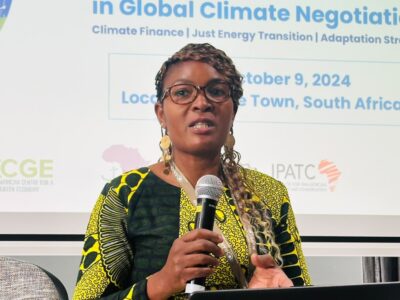The Bank of Zambia (BoZ) has underscored the critical role of sex-disaggregated data in formulating and implementing policies aimed at improving financial inclusion for both women and men.
During her speech at the Financial Inclusion Data Conference held in Lusaka on Tuesday, Rekha Chifuwe Mhango, Deputy Governor-Administration of the BoZ, highlighted the significance of such data in crafting effective financial solutions and fostering a more inclusive financial system.
Mhango emphasized that sex-disaggregated data was vital for identifying the unique needs of different genders and for developing targeted financial products and services.
This approach not only enhanced access to financial solutions but also supported the creation of a more equitable financial environment.
“As the government continues to advance sustainable and inclusive development through targeted policy formulation, the demand for gender statistics by government agencies, financial institutions, and other stakeholders is rapidly increasing,” Mhango said.
She explained that data allowed policymakers to design policies specifically addressing women’s financial inclusion and provides Financial Service Providers (FSPs) with insights to tailor their offerings to diverse needs.
Read more: Central bank moves to modernize Zambia’s payment infrastructure, with digital economy project
She further noted that ensuring universal access to affordable and high-quality financial products remained a central focus in promoting resilient and inclusive growth, while also addressing existing gender disparities in economic empowerment.
In addition to Mhango’s remarks, Mainga Kabika, Permanent Secretary of the Gender Division in the Office of the President, acknowledged the challenges faced by women in securing funding for their businesses. Kabika, represented by Henry Nkhoma, Director of Gender and Development, noted that issues such as lack of collateral, high interest rates, and the time-consuming nature of applying for loans can hinder women’s access to financial resources.
She also pointed out that social norms and limited awareness about funding opportunities can further complicate the process for women.
“The process of applying for funding can be daunting and is often compounded by other responsibilities such as childcare and household management,” Kabika’s speech highlighted.
She called for greater support and awareness to help women navigate the funding landscape and access available opportunities.
Both Mhango and Kabika’s statements reflect a growing recognition of the need for targeted efforts to bridge gender gaps in financial inclusion and to support the broader goal of sustainable economic development.
WARNING! All rights reserved. This material, and other digital content on this website, may not be reproduced, published, broadcast, rewritten or redistributed in whole or in part without prior express permission from ZAMBIA MONITOR.












Comments